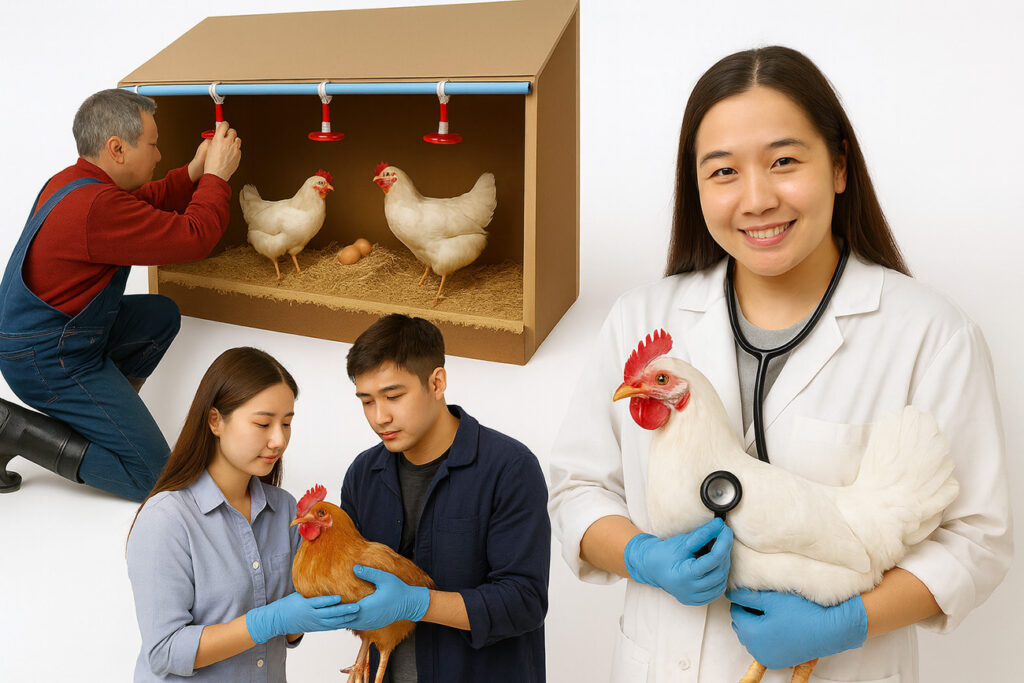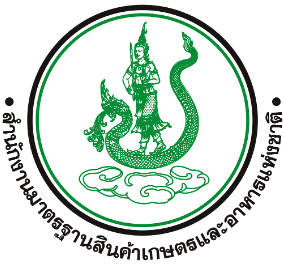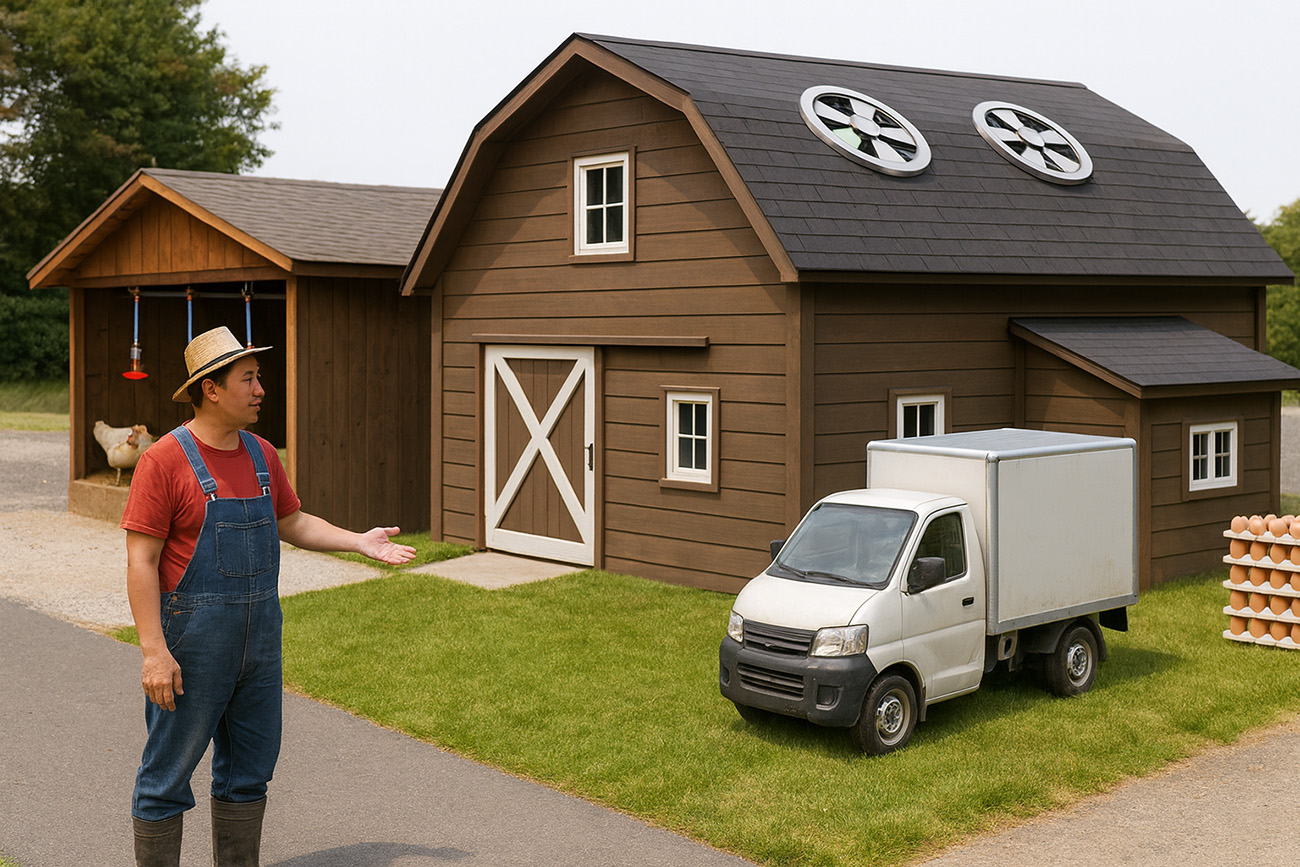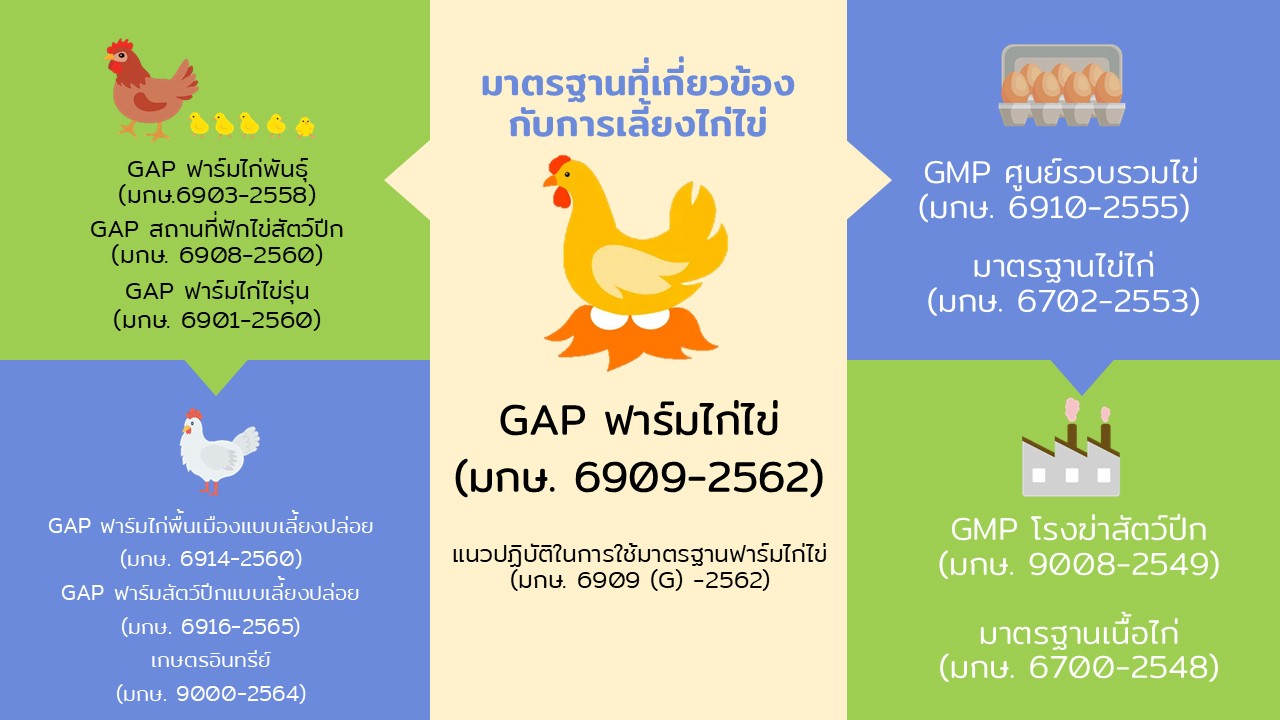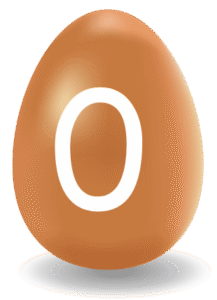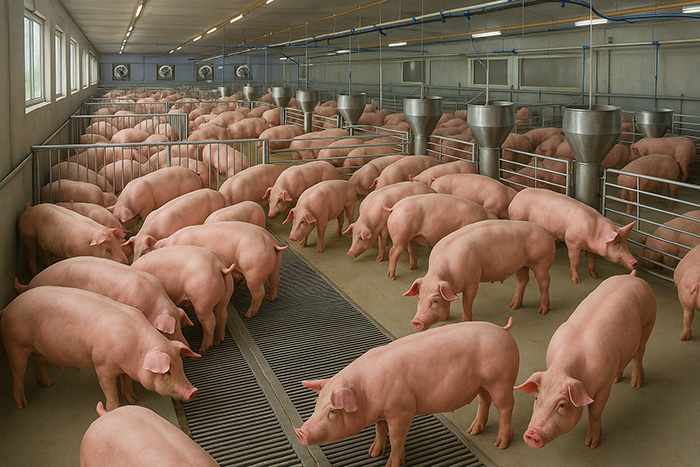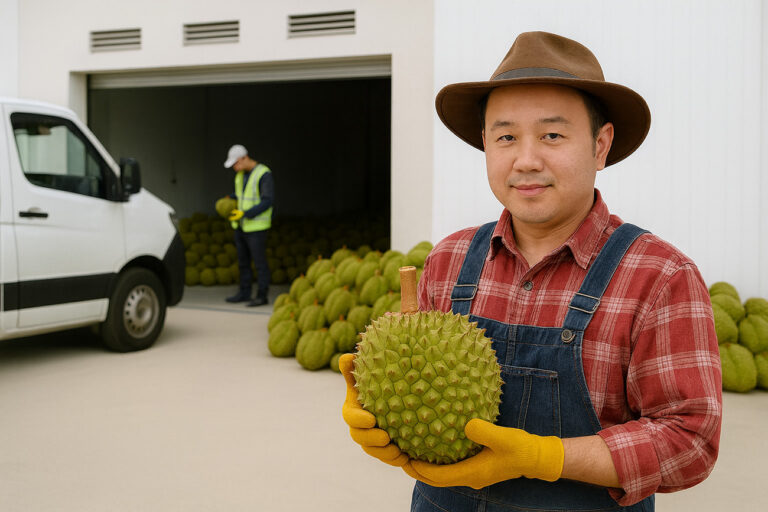Introduction
The Thai Agricultural Standard (TAS 6909-2019) “Good Agricultural Practices for Chicken Farms (Layer Farms)” has been implemented to promote quality poultry farming with proper hygiene, feed management, housing sanitation, disease control, and quality monitoring. The objective is to ensure that chickens and products from farms are safe and acceptable for both domestic consumption and export markets.
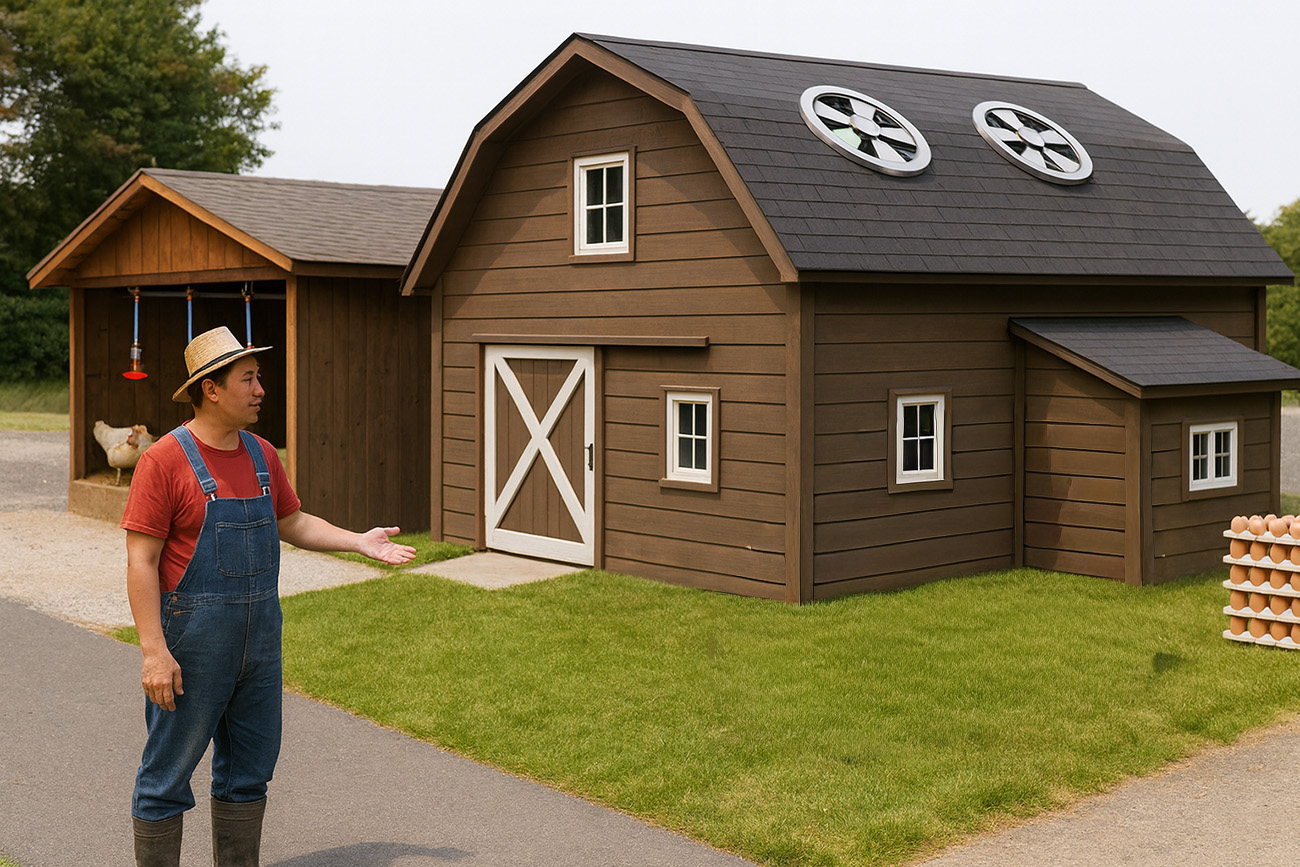
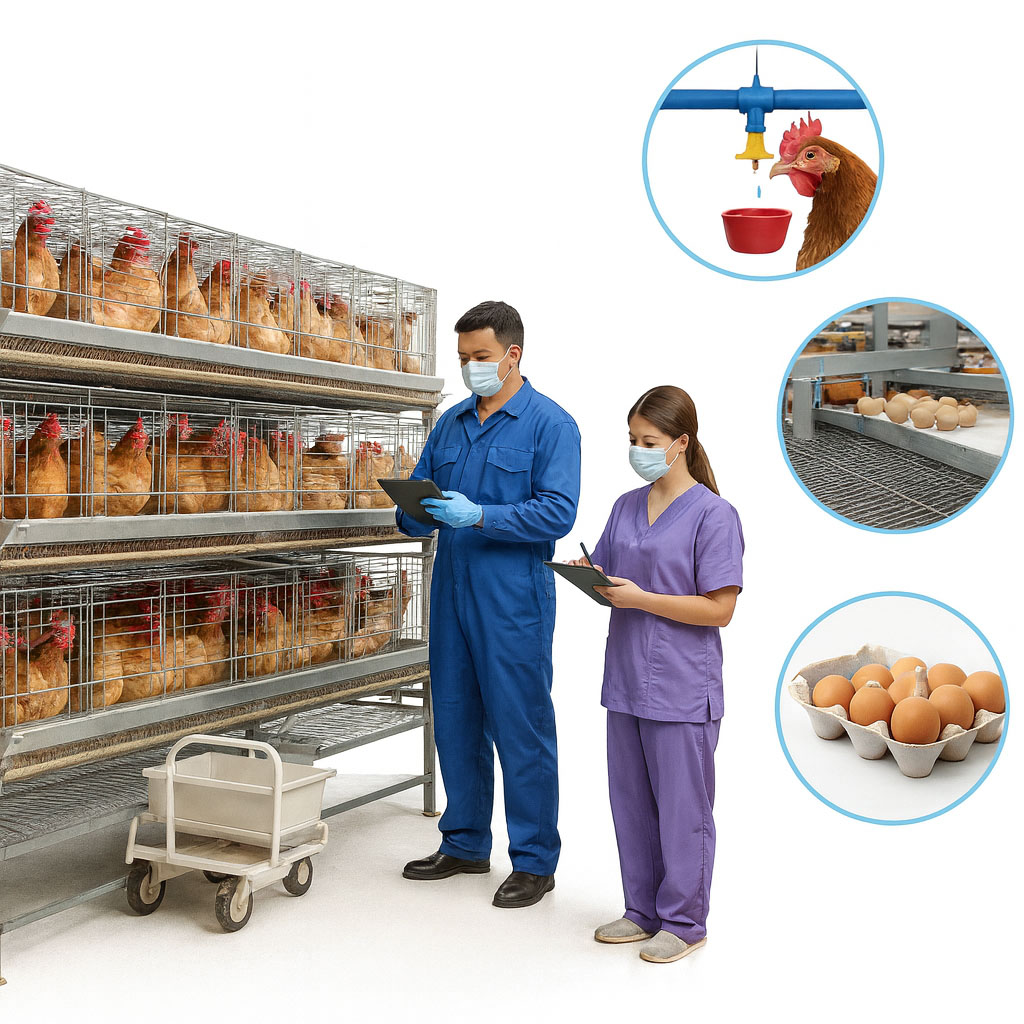
Objective
The production of eggs that are safe, of good quality, and suitable for consumption shall cover the prevention of food hazards in all three aspects, namely:
- Chemical hazards Residues of drugs or chemicals that may contaminate eggs.
- Physical hazards Foreign materials that may enter the production process.
- Biological hazards Pathogenic microorganisms such as Salmonella that may pose risks to consumers.
Scope
- This Thai Agricultural Standard establishes good agricultural practices for layer farms raising hens for commercial purposes with a capacity of 1,000 birds or more. It covers farm components, farm management, feed and water, personnel management, animal health management, animal welfare management, management of pullets, laying hens, and eggs, environmental management, and record keeping. The objective is to obtain eggs that are safe and of suitable quality for human consumption.
- This standard does not cover layer farms certified under other farming systems recognized by the Department of Livestock Development, such as the Thai Agricultural Standard (TAS 9000 Part 2) Organic Agriculture – Part 2: Organic Livestock, or free-range layer farms.
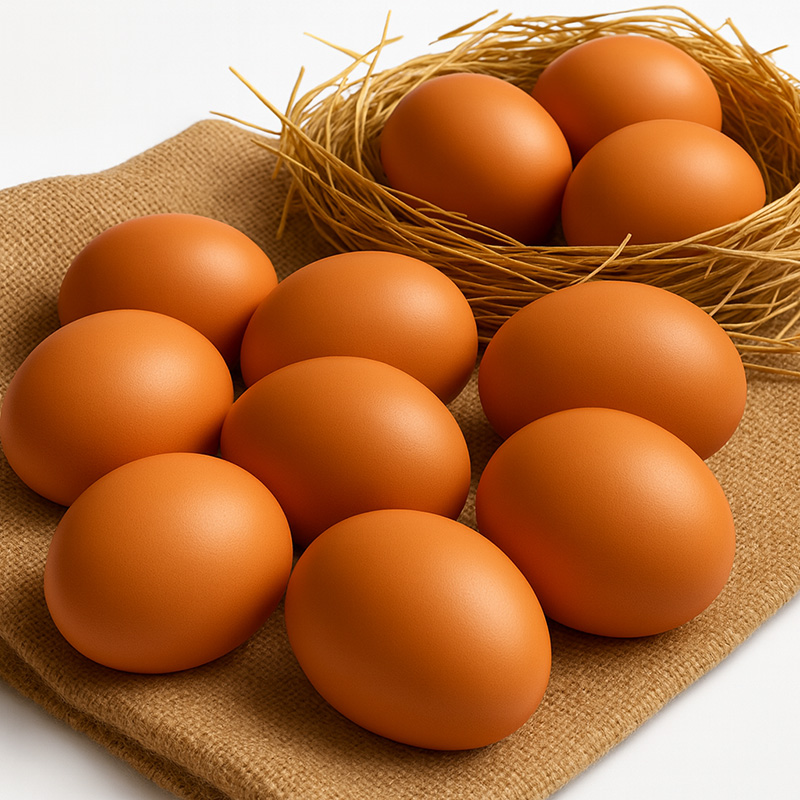
Key elements of Good Agricultural Practices for chicken farms
Summary of Key Elements of Thai Agricultural Standard (TAS 6909-2019) “Good Agricultural Practices for Layer Farms (GAP for Layer Farms)”
The GAP standard for layer farms is of great importance.
- Ensuring food safety
- Control of poultry epidemics
- Reduce environmental impacts
- Promote the export of Thai eggs
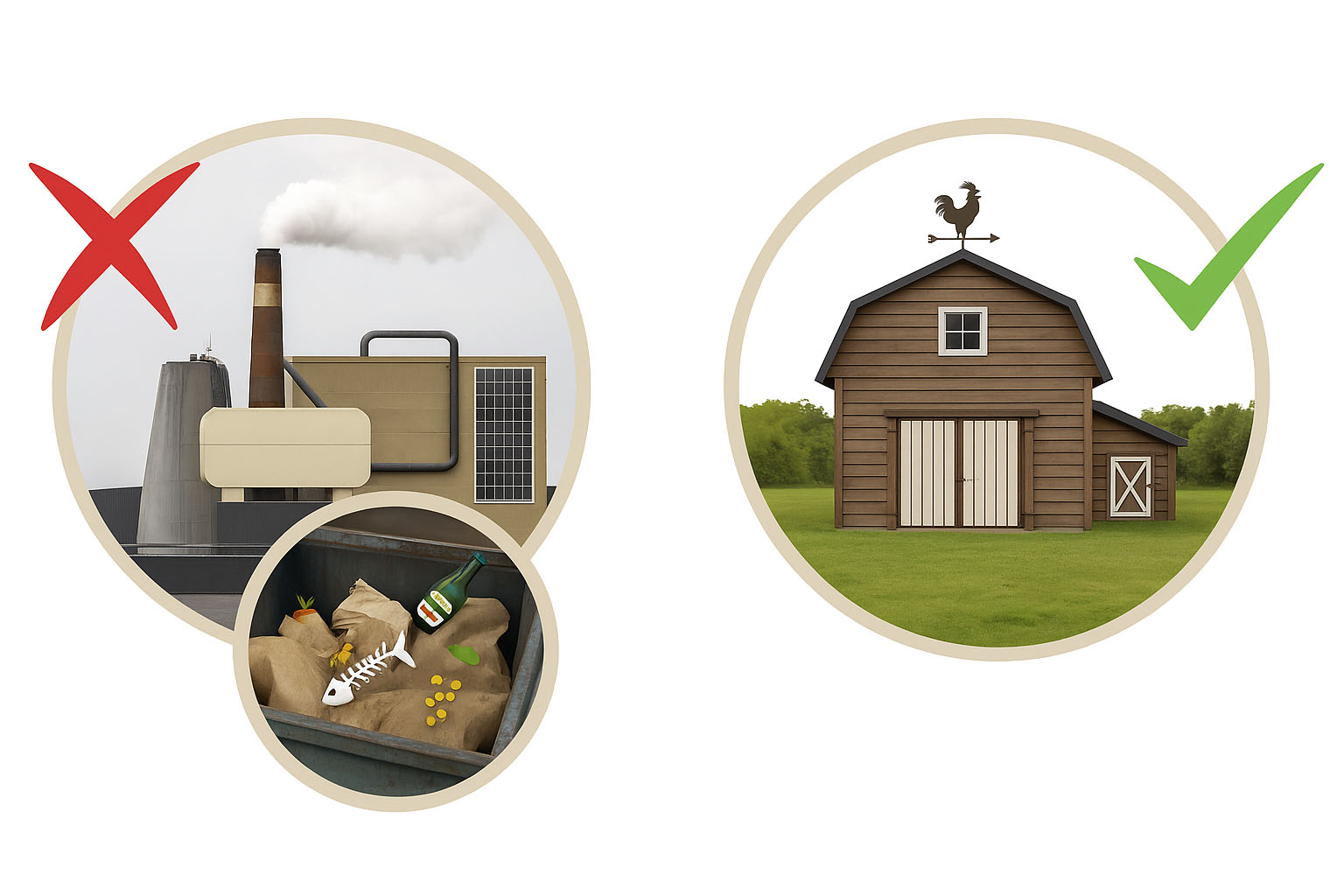
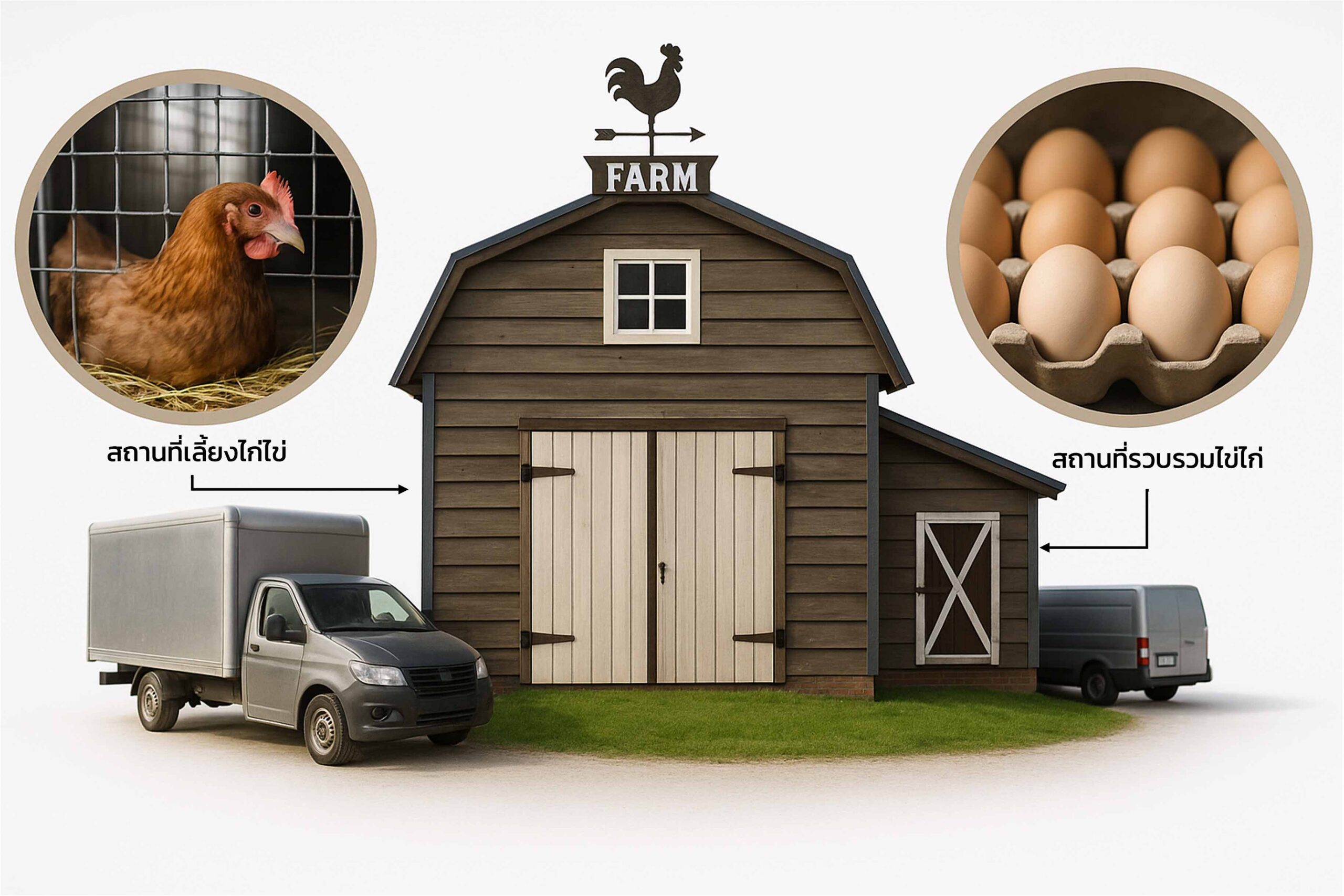
Key Elements of the Standard (TAS 6909-2019)
The Good Agricultural Practices (GAP) Standard for Layer Farms (TAS 6909-2019) is an important requirement to enhance the quality and safety of eggs for commercial purposes. Its application shall be enforced according to the size of the farm as follows:
- Layer farms with 100,000 hens or more: enforced from 21 February 2021.
- Layer farms with 1,000 – 99,999 hens: enforced from 21 February 2025.
Scope of the Standard
This standard covers key elements to ensure the production of eggs that are of good quality and safe.
- Farm components Farm design and structure
- Farm management Overall management process
- Feed and water Quality and management of feed and water sources
- Personnel management Knowledge, hygiene, and welfare of personnel
- Animal health management Disease prevention and control
- Animal welfare management Care and well-being of layer hens
- Management of pullets, laying hens, and eggs Rearing and harvesting processes
- Environmental management Waste treatment and environmental impacts
- Record keeping Keeping essential records for traceability
Key requirements for layer farms
- Producers (mandatory farms) Producers shall be authorized by the National Bureau of Agricultural Commodity and Food Standards (ACFS) and shall obtain a farm certification from the Department of Livestock Development.
- Exemptions This standard does not cover layer farms that have already been certified under other farming systems recognized by the Department of Livestock Development, such as organic farming or free-range layer farms.
- Farm components
- The location shall not pose a risk of contamination.
- A farm layout shall be hygienic and appropriate.
- The poultry house shall be strong, hygienic, well-ventilated, and provide sufficient space with due consideration to animal welfare.
- Farm management
- A written farm management manual shall be available.
- Feed and water shall be of good quality and sufficient to meet the requirements of the hens.
- Houses and equipment shall be clean and regularly maintained.
- Personnel
- There shall be sufficient personnel with knowledge and understanding of their responsibilities.
- Shall receive training related to layer farming.
- A veterinarian shall be responsible for supervising the farm.
- Personal hygiene of personnel shall be strictly controlled.
- Animal health
- The source of layer hens shall be traceable.
- Strict biosecurity measures for disease prevention and control shall be in place.
- A disease surveillance plan shall be in place.
- Animal carcasses shall be properly and hygienically disposed of.
- Animal welfare Layer hens shall be cared for in accordance with animal welfare principles to reduce stress and promote good health.
- Environment A system for proper disposal of garbage, wastewater, and other farm wastes shall be in place to prevent adverse impacts on the environment.
- Record keeping All essential operational records shall be accurately and completely documented and retained for at least three years to ensure traceability and support farm improvement.
